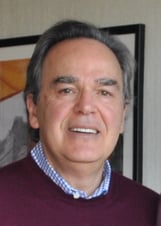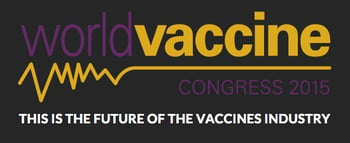Chase Medical Research’s own Dr. Joseph Soufer, MD, recently attended the 15th Annual World Vaccine Congress 2015 in Washington, D.C. The biggest in the industry, the event drew over 400 attendees to learn about the challenges facing vaccine scientists, the research they are doing, and the goals they hope to achieve both now and in the future.
As the CEO and Medical Director of Chase Medical Research, Dr. Soufer has a vested interest in advances in medical science that will help prevent illness and prolong life. He shares his experience at the conference below.
Conference Overview
Overall, I found the talks and discussions to be especially helpful for someone doing clinical research.

Vaccines that can save lives can’t get into the market without clinical trials, so fostering a relationship between the scientific and pharmaceutical side of vaccines and medications is very important.
The conference was divided into different sections:
-
Cancer and immunotherapy
-
Flu and respiratory
-
Bioprocessing and manufacturing
-
Veterinary
-
Clinical development and trials
-
Emerging and reemerging diseases
At the beginning of the conference, there was a discussion on vaccines and how they have impacted society over the past 100 years. In recent times, there has been a socially negative response to vaccine therapy because of a debunked study linking vaccinations to autism, but the speakers tried to drive home the importance of vaccine study and development to prolong life.
Here are some takeaways from just a few of the valuable sessions I attended -
Vaccines and Lifespan
In the early 1900’s, infectious disease was the number one killer, and the average human lifespan was 42-46. Today, the average lifespan is 80 years old, and that has a lot to do with the vaccines that prevent infectious disease like measles, mumps, rubella, and other formerly fatal illnesses.
Advances made since the early 1900’s point to the potential lifespan of a baby born today. In the near future, scientists may be able to identify certain genomes to see if they have a mutation that can develop cancer or other illness. With the right research and the right vaccine development, vaccines can be developed to counteract cancer, Alzheimer’s disease, and a host of other autoimmune diseases.
If scientists and doctors are able to make progress to the next stage, where instead of just preventing infectious disease we are preventing cell mutations, the average lifespan could reach to 140 years of age.
Vaccine Research Challenges
Now that medical research is able to eradicate diseases like measles and meningitis, the next step is, in fact, preventing cancer and other currently untreatable illnesses. Many things need to be done to get to that point, but it is realistically possible if medical science is given the funding it needs to accomplish that goal.
At the conference, there were a number of physicians and scientists developing remarkable innovations. The difficulty that vaccine communities are having is getting the pharmaceutical industry interested in investing to develop the new vaccines.
That industry is seeking immediate results and vaccine therapy takes a period of time to develop. Thanks to an infusion of private money, from the Bill and Melinda Gates Foundation, for example, many researchers are still able to do some fantastic work.
The Global Vaccine Community 
A major topic of discussion at the conference was the global vaccine community, because certain areas of the world have different problems with diseases.
In Africa and Asia, for example, there is a severe problem with rabies. In the Philippines, doctors have been giving a rabies vaccine to dogs, and rabies is now 100% preventable there. Getting that vaccine to other areas of Asia and Africa could hopefully accomplish the same.
In Japan, a form of encephalitis called Japanese encephalitis (JE), or “brain fever” is an incurable, devastating disease that kills a third of its victims. Many survivors suffer irreparable brain injuries. PATH, an international health group that works to get the right immunizations and vaccines to areas at risk, has facilitated an effort to get the JE vaccine to over 200 million people by 2017.
Certain groups are working on prophylactic therapies of vaccines in the Middle East and Africa to prevent elephantitis - a condition where worms get into the blood and cause swelling of limbs and potential heart failure. Access to a vaccine for elephantitis was successfully administered in Columbia and the disease has been eradicated there.
A quote that brought the global situation to home: “in order to really fight these infectious diseases, we need to bring about health equity - where people throughout the world have a certain amount of protection.” Health equity means that even poverty stricken countries would have the same access to vaccines that wealthier countries do.
Throughout the world, 1500 people die every ten hours because they’re not being vaccinated with therapies that many of us take for granted.
In Closing
With vaccines developing to fight staph, superbugs, and cancer, it is a great time to be involved in medical research. Conferences like this one are so useful to me because the relationship between the scientific world, pharmaceuticals, and research is so important.
Attending this conference gave me fascinating insights on the future of vaccines and vaccine research.
If you have any questions about vaccines or the conference I attended, don't hesitate to reach out and contact me.
If you're interested in helping further the research of vaccines, please click the button below to learn about vaccine clinical trials.
Share This Post
Recent Posts
- Relationship Between Obesity & Cardiovascular Disease June 9 2015
- What to Know About Vaccines June 9 2015
- What is Blood Pressure & What do Your Numbers Mean? A Quick Refresher. June 9 2015
- My Sugars Are Still High - Is Insulin the Right Choice for Me? June 9 2015
- Great News! Treatment Options for Chronic Kidney Disease June 9 2015
Categories
- Clinical Trials
- Diabetes
- Cardiovascular Disease
- Obesity
- Kidney Disease
- Pain Management
- Vaccine
- Female Sexual Dysfunction
- Migraine
- Chronic Obstructive Pulmonary Disease
- Osteoarthritis
- Alzheimer's
- Biologics
- COVID-19
- Diabetic Peripheral Neuropathy
- Gastroesophageal Reflux Disease
- Hypertension
- Irritable Bowel Syndrome with Constipation
- Lyme Disease
- Nonalcoholic Steatohepatitis
- Respiratory Syncytial Virus



